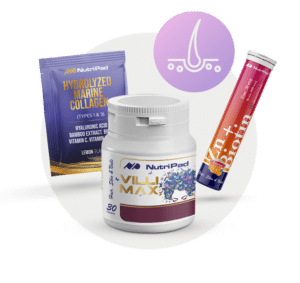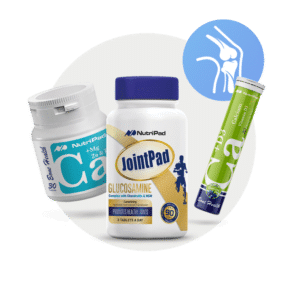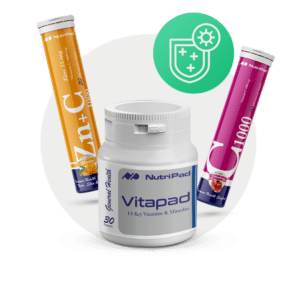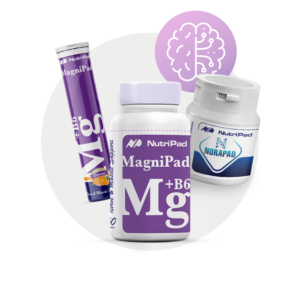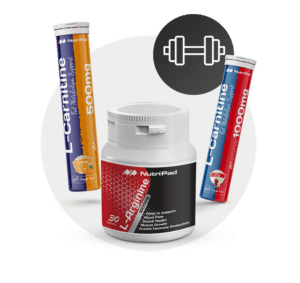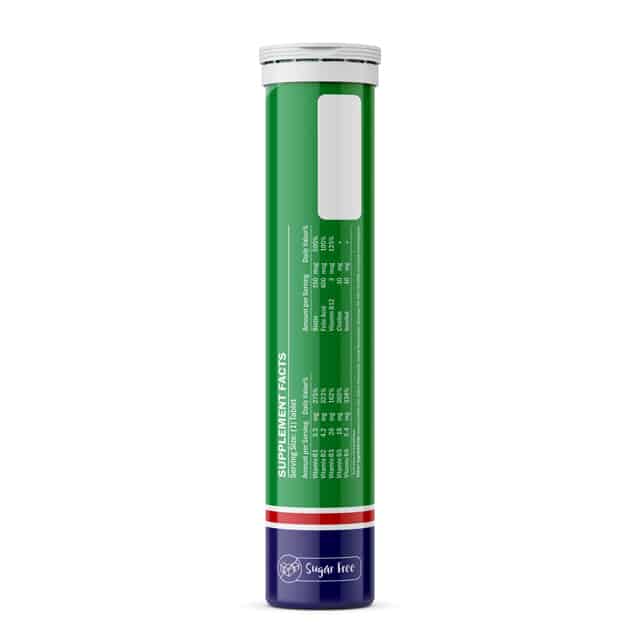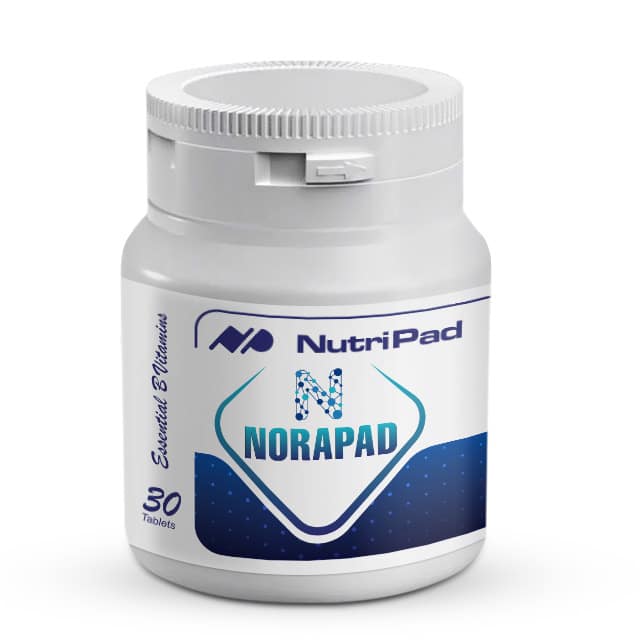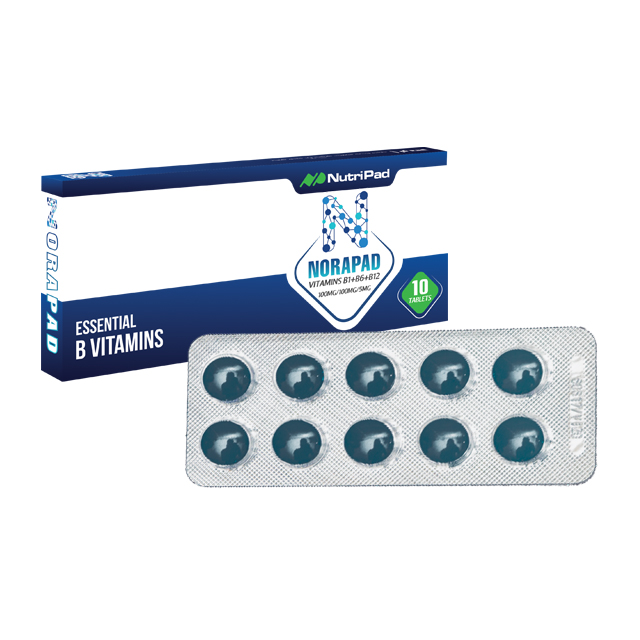Supplements Containing Group B Vitamins
B vitamins are vital for the proper functioning of body cells. These vitamins have several roles in the body: they help the cells of the body to convert food into energy, to make new blood cells in the body, and also to keep the cells of the skin, brain and other tissues of the body healthy.
There are nine different types of B vitamins, each of which has its own role:
Thiamine (vitamin B1)
Riboflavin (vitamin B2)
Niacin (vitamin B3)
Pantothenic acid (vitamin B5)
Pyridoxine (vitamin B6)
Biotin (vitamin B7)
Folate (vitamin B9)
Cobalamin (vitamin B-12)
Group B vitamins are water-soluble. These vitamins are usually not stored in the body and should be taken regularly through food or nutritional supplements. Vitamin B12 and folic acid are two exceptions because they are stored in the liver. If not taken through diet (as in vegans), after a few months or in the case of vitamin B12, after about 2-3 years deficiency symptoms will appear. In the following, we will discuss each of the group B vitamins. We will explain which group B vitamins are crucial for brain and nerve function.
Thiamine (Vitamin B1)
The heart, liver, kidney, and brain all contain large amounts of thiamine.
The body needs thiamine for the following:
– Breakdown of sugar molecules (carbohydrates) in food
– Production of neurotransmitters (chemical substances in the brain and nervous system that are necessary for transmission of nerve messages between cells)
– Production of fatty acids
– Making hormones
Foods Rich in Thiamine
The following foods are rich in thiamine:
– Whole grains and enriched bread
– Salmon
– Oysters
– Squash
– Legumes, such as black beans and soybeans
– nuts
Thiamine deficiency is not common in those with adequate nutrition. However, certain groups of people may not get enough thiamine through diet, including:
– Alcoholics
– The elderly
– People with HIV or AIDS
– People with diabetes
– Patients with heart failure
– Those who have undergone bariatric surgery
Symptoms of Thiamine Deficiency
People with thiamine deficiency may experience the following:
– Weight Loss
– Lack of appetite or anorexia
– Memory problems or mental confusion
– Heart problems
– Tingling and numbness in hands and feet
– Loss of muscle mass
– Weak reflexes
Alcohol dependence may cause thiamine deficiency. This problem manifests itself in the form of Wernicke-Korsakoff syndrome (WKS). This syndrome may lead to tingling and numbness in the hands and feet, memory loss and confusion. In severe forms, decreased consciousness may also happen. This syndrome may lead to Wernicke’s encephalopathy (WE), which is potentially life-threatening. Patients with this syndrome require high doses of injectable thiamine as treatment (well above the minimum daily dose recommended by the FDA for the general population).
Riboflavin (Vitamin B2)
The role of riboflavin includes the following:
– energy production
– Helping to break down fats, drugs and steroid hormones in the body
– Conversion of tryptophan to niacin (vitamin B3)
– Converting Vitamin B6 into the coenzyme needed by the body
Foods Rich in Riboflavin
Foods rich in riboflavin include:
– Meat
– Cereals
– Bulgur, oats
– Yogurt and milk
– Mushroom
– Almonds
Symptoms of Riboflavin Deficiency
Riboflavin deficiency is rare in well-nourished individuals but may occur when a person has certain endocrine disorders, such as thyroid dysfunction.
People with riboflavin deficiency may experience the following:
– Skin disorders
– Sore in the corner of the mouth
– Swelling of the mouth and throat
– Swollen and cracked lips
– hair loss
– Red and itchy eyes
A severe lack of riboflavin can lead to anemia and cataracts. Riboflavin deficiency during pregnancy can increase the risk of birth defect.
People who are more at risk of riboflavin deficiency include:
– Those who follow a vegetarian diet or do not consume dairy products.
– Athletes who do not eat meat, especially those who do not take dairy or other animal products.
– Pregnant or lactating women, especially those who do not take meat or dairy products.
Niacin (Vitamin B3)
Niacin is converted into a coenzyme, which is necessary for more than 400 different reactions in the body, which is the highest number of coenzymes derived from a vitamin. Niacin helps to:
– Energy production from carbohydrates, fats and proteins
– To carry out metabolic processes in body cells
– Communication between cells
– DNA expression in cells
Foods Rich in Niacin
– Animal foods such as meat, chicken and fish
– Plant foods such as nuts, legumes, and grains contain a natural form of niacin that the body cannot easily use. However, food manufacturers sometimes add niacin to foods such as grains so the body can easily use it.
Niacin Deficiency Symptoms
Severe niacin deficiency leads to Pellagra disease, which may manifest itself with such symptoms:
– Changing the color of the skin exposed to sunlight to brown
– Rough-looking skin spots
– Changing the color of the tongue to an unnatural bright red color
– Vomiting, diarrhea or constipation
– Headache
– Fatigue
– Depression
If left untreated, Pellagra can lead to severe memory problems, behavioral changes, and suicidal behaviors. It may also lead to severe loss of appetite or death.
People at risk of niacin deficiency include:
– Malnourished people
– Patients with anorexia nervosa
– People suffering from alcohol abuse
– People with AIDS
– Inflammatory bowel disease (IBD)
– Hartnup disease (a disease in which the body loses the ability to absorb certain amino acids)
– Patients with carcinoid syndrome (a type of gastrointestinal tumor)
Pantothenic Acid (Vitamin B5)
Pantothenic acid is necessary to create new coenzymes, proteins and fats.
Red blood cells carry pantothenic acid throughout the body. Thus, pantothenic acid is vital for various processes related to energy and metabolism.
Foods Rich in Pantothenic Acid
Some of the foods that contain the highest amounts of pantothenic acid are:
– Beef liver
– Shiitake mushrooms
– Sunflower seeds
– Chicken
– Tuna fish
– Avocado
Pantothenic Acid Deficiency Symptoms
Pantothenic acid deficiency is rare in people with good nutritional status because it is present in many foods. However, pantothenic acid deficiency may affect people with severe malnutrition. These people are usually deficient in other nutrients as well.
Deficiency symptoms include:
– Numbness and burning of hands and feet
– Headache
– Irritability
– Restlessness and insomnia
– Lack of appetite
Pyridoxine (Vitamin B6)
Vitamin B-6 or pyridoxine is involved in more than 100 enzymatic reactions. The roles of vitamin B-6 in the body include:
– Metabolism of amino acids
– Breakdown of carbohydrates and fats
– Brain development
– Normal functioning of the immune system
Foods Rich in Vitamin B6
The richest sources of vitamin B6 are:
– Meat
– Pea
– Tuna fish
– Salmon fish
– Chicken meat
– potato
– Enriched cereals
Symptoms of Vitamin B6 Deficiency
According to the National Institutes of Health (NIH) Office of Dietary Supplements, vitamin B6 deficiency is generally associated with low levels of vitamin B-12.
Vitamin B6 deficiency may cause the following complications:
– Anemia
– Scaling of the lips
– Cracks in the corner of the mouth
– Swollen tongue
– Weakness of the immune system
– Confusion
– Depression
People Who Are at Risk of Vitamin B6 Deficiency Include:
– Kidney patients
– Patients who have had a kidney transplant
– Patients with Celiac disease (a type of disease in which sufferers are unable to absorb the gluten protein found in grains)
– Patients with Crohn’s disease (a type of severe inflammatory bowel disease that may affect the small intestine or large intestine)
– Ulcerative colitis (an inflammatory bowel disease that affects the large intestine)
– Patients with autoimmune disorders such as rheumatoid arthritis
– People with alcohol dependence
Biotin (Vitamin B7)
The human body needs biotin for the following:
– Breakdown of fats, carbohydrates and proteins
– Communication between body cells
– Regulation of DNA function
Foods Rich in Biotin
Many foods contain biotin, including:
– Meat
– egg
– Salmon fish
– Beef
– Sunflower seeds
Symptoms of Biotin Deficiency
Symptoms of biotin deficiency include:
– Hair thinning
– Scaly rash around the eyes, nose and mouth
– Brittle nails
– Depression
– Fatigue
Biotin is added to many hair, skin and nail supplements. It is believed that the biotin in these supplements has beneficial effects on nails, skin and hair. Biotin may also help improve psoriasis.
Biotin deficiency is less common in people who have proper nutrition, but the following groups may be more at risk of biotin deficiency:
– People with a metabolic disorder called biotinidase deficiency
– People addicted to alcohol
– Pregnant or lactating women
Folate (Vitamin B9)
The natural form of vitamin B9 is called folate. Folic acid is the synthetic form of this vitamin.
Because many people do not take enough green leafy vegetables to meet the required levels of folate during pregnancy, the Centers for Disease Control and Prevention (CDC) recommends that all women in childbearing age who wish to become pregnant should take 400 micrograms of folic acid daily, along with an appropriate diet containing folate.
Adequate levels of folate, both before and during pregnancy, lower the risk of a congenital disease in the brain and spinal cord of the fetus.
The presence of folate in the body is necessary for the following:
– DNA replication
– Metabolism of vitamins
– Metabolism of amino acids
– Normal cell division
The FDA requires food manufacturers to add folic acid to foods derived from grains (such as bread). This approach has reduced the occurrence of defects related to the normal formation of the neural tube in the fetus.
Foods Are Rich in Folate
– Vegetables with dark green leaves
– Beef liver
– Avocado
– Papaya
– Orange juice
– Egg
– Beans
– Nuts
Symptoms of Folate Deficiency
Folate deficiency is not prevalent in countries where cereal foods (such as bread) are fortified with folic acid.
Possible symptoms of folate deficiency may include:
– Weakness
– Headache
– Heart beat
– Irritability
– Sores on the tongue or in the mouth
– Skin, hair or nail changes
The FDA recommends that women increase their daily intake of folate and folic acid supplements before becoming pregnant and during pregnancy. Other groups that may need extra folate include:
– Patients suffering from alcohol abuse
– People with celiac disease
– People with conditions that interfere with the absorption of nutrients
– IBD (inflammatory bowel disease)
Taking more than 1000 micrograms of folic acid per day is not recommended because taking more than this amount of folic acid can hide the symptoms of vitamin B-12 deficiency, which may cause permanent nerve damage. Meanwhile, folic acid has no known side effect when taking in doses higher than the recommended minimum daily requirement.
Cobalamin (Vitamin B12)
Vitamin B12 is found naturally in animal products. Products like:
– Oysters
– Beef liver
– Salmon fish
– Beef
– Milk and yogurt
People who do not have animal products may need to get vitamin B12 through supplements, fortified foods or nutritional yeast.
Symptoms of Vitamin B12 Deficiency
Vitamin B12 deficiency usually causes a disease called megaloblastic anemia (a type of anemia in which the red blood cells are larger than usual).
Symptoms of vitamin B12 deficiency may include the following:
– Fatigue
– Weight Loss
– Constipation
– Loss of appetite
– Numbness and tingling in hands and feet
– Memory problems
– Depression
People who are at risk of vitamin B12 deficiency include:
– People with impaired absorption of nutrients
– The elderly
– People with celiac disease
– People with Crohn’s disease
– People who have performed gastric bypass surgery or surgeries on the stomach.
– Vegetarians and vegans
– People who are pregnant or breastfeeding may also need additional vitamin B12.
Introduction of Supplements Containing Group B Vitamins
Most multivitamin supplements contain a certain amount of B vitamins, many of which provide 100% or more of a person’s daily requirement for each vitamin.
People may take some B vitamins alone (for example, if they are deficient in only one type of B vitamin). However, evidence suggests that a complete B complex vitamin supplement containing all B vitamins may be a better choice, even if a person is deficient in only one vitamin. The reason is that these vitamins are likely to be effective in the absorption and effectiveness of each other.
Which of the group B vitamins play a crucial role in the functioning of the brain and nervous system?
Except vitamin B complex, there are other products in which there is more than one type of this group of vitamins. Among these multi-component products, there are also products that are specifically useful in the field of brain and nerve function. These products may be available in injectable or oral form.
Three vitamins, including vitaminB1, vitaminB6 and vitamin B12, are more important in connection with nerve function. Available studies indicate that each of these three vitamins alone are beneficial for the nervous system. Vitamin B1 is essential for energy production in nerve cells. Vitamin B6 plays a role in the production of neurotransmitters and the transmission of messages between nerve cells. Vitamin B12 is also crucial in the function of the cells around nerve cells and the formation of parts called myelin that play a role in the of messages transmission in the axons in the nerve cells. Deficiency in any of these three vitamins is associated with symptoms in the nervous system and known diseases. Among other properties of these vitamins are their neurotrophic effects (helping to reproduce and repair nerve cells). This effect is especially advantageous in patients with diabetes. There are about 450 million people with diabetes in the world. Patients with diabetes may develop a complication called “diabetic neuropathy” after a few years. In this condition, due to harmful effects of diabetes on nerve cells, patients experience pains in the form of burning, tingling, and humming. The pains are usually felt in the extremities of the limbs, i.e. in the hands and feet in the regions covered by gloves and socks. There is evidence that taking these three vitamins at the same time may have a synergistic effect in improving the symptoms of diabetic neuropathy. In addition, these vitamins may play a role in improving the symptoms of other forms of neuropathy and other neurological problems in general.
Is there a need to take vitamin B supplements?
The general recommendation is to get the required vitamins through diet. However, harmful eating habits and underlying diseases may make us prone to deficiency in group B vitamins. For example, group B vitamins are abundant in grains with bran, while today, we generally use bread made from bran-free grains and refined flour.
Some group B vitamins (vitamin B12) are solely present in animal sources such as meat, and people who follow a vegetarian diet are prone to vitamin B12 deficiency. Metformin, an oral antidiabetic, make the patient susceptible to the deficiency of vitamin B12. Moreover, acid suppressant drugs like omeprazole and famotidine interfere with the absorption of some B vitamins, including vitamin B12. People over 50 are more prone to deficiency of group B vitamins than others. Therefore, taking vitamin B supplements may be beneficial for many people. Group B vitamins are water-soluble so their excess amount is excreted, and the body does not store a significant amount of them. In the meantime, vitamin B12 is the only exception, which the body stores for 2-3 years, and for this reason, vegans, if they do not take supplements containing vitamin B12 after this period (2 to 3 years), usually will experience symptoms of deficiency.
In general, always try to get a sufficient amount of group B vitamins to your body through proper nutrition, and if you fail to do so for any reason or if you are one of those people at risk of deficiency, use food supplements to compensate.
Neurobion injectable ampoule is one of the well-known products to supply and eliminate the deficiency of these three vitamins, i.e. vitamins B1, B6 and B12. As it comes from the commercial name of this product (Neurobion), it offers neurological benefits. In addition to the ability to eliminate the deficiency in these three vitamins and the normal functioning of the brain and nerves, Neurobion is used to relieve and improve all types of neuropathy (pains and problems caused by nerve damage), especially diabetic neuropathy. Due to the vital role of these three vitamins in energy production and metabolism, Neurobion injection is helpful in fatigue and lethargy, anemia, increasing appetite, and boosting the immune system. In most people (except patients having problems in vitamins B1, B12 and B6 absorption), taking these vitamins by moth is effective and equivalent to the injectable form. Considering this point, Merk company produced Neurobion tablet (the oral formulation of the supplement). A form of the product that contains a higher dose of these vitamins is also called “Neurobion Fort” and is also available as tablet.
In Iran, for the first time, “Nurapad” tablets with the same composition as “Neurobion Fort” have been produced by NutriPad company. By removing the pain and side effects of injection and increasing the frequency of daily use of Nurapad tablets, which are equivalent to Neurobion Fort, a more powerful effect than the injectable form is achievable. Nurapad is especially an ideal product to supply and eliminate vitamin B12 deficiency in people who have adopted a vegan diet, and due to the use of high doses of vitamins B1, B6, and B12, among similar supplements, it has the best effect in relieving lethargy and fatigue and increasing energy.




